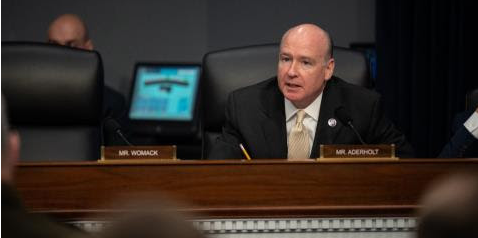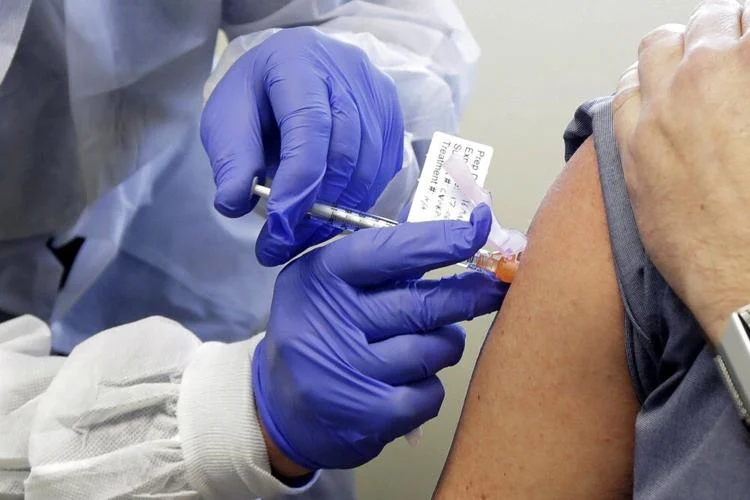NFL player Damar Hamlin is still in critical condition

Buffalo Bills defensive Damar Hamlin is still in critical condition following what appeared to be a heart attack on the field of the Monday night football game between the Bills and the Cincinnati Bengals. The Bills released a statement following the incident:” Damar Hamlin suffered a cardiac arrest following a hit in the Buffalo Bills’ game versus the Cincinnati Bengals. His heartbeat was restored on the field, and he was transferred to the University of Cincinnati Medical Center for further testing and treatment. He is currently sedated and listed in critical condition.” “Hamlin’s injury took place at the 5:58 mark of the first quarter,” the Bills statement continued. “The game was postponed by the NFL after Hamlin received medical attention on the field. The team and all of the sports world continue to pray for his recovery. Get well soon Damar!” It was the first time that an NFL game was not continued due to an injury. The NFL has announced that the Bills vs. Bengals game will not resume this week, and no decision has been made on when and if it will resume. The week 18 schedule appears to be proceeding as planned. Both teams have already qualified for the playoffs, but the game has enormous repercussions regarding playoffs seeding. Hamlin is in critical condition in the Intensive Care Unit (ICU) at the University of Cincinnati Hospital. Hamlin was given CPR and heart defibrillation on the field. He is reportedly still fighting for his life. “Our thoughts are with Damar and the Buffalo Bills,” the NFL said in a statement. “We will provide more information as it becomes available. The NFL has been in constant communication with the NFL Players Association, which is in agreement with postponing the game.” Football is the most popular sport in America and Alabama, but it is also considered to be one of the most dangerous sports. To connect with the author of this story, or to comment, email brandonmreporter@gmail.com.
Robert Aderholt plans to vote for Kevin McCarthy for Speaker

In the November midterms, the voters gave Republicans a small majority in the U.S. House of Representatives. The new GOP House majority should select the next Speaker of the House after four years of Nancy Pelosi. The squabbling Republicans, however apparently can’t agree on who will get to be the new Speaker. On Monday, Congressman Robert Aderholt announced that he plans to vote for Rep. Kevin McCarthy to be the next Speaker of the U.S. House of Representatives. “I’m planning to cast my vote for Kevin McCarthy to be the next Speaker of the U.S. House of Representatives,” Aderholt said in a statement emailed to Alabama Today. “He’s earned it. No one has worked harder to take back the House than Kevin McCarthy.” “The American people elected a Republican majority in the House because they were tired of the direction of our nation and the leadership of Speaker Pelosi,” Aderholt continued. “The American people are expecting us to work to stop inflation, deal with the crisis at our southern border and hold the Biden Administration accountable. The sooner we elect a Republican Speaker, the sooner we can start.” As of press time, it was still in doubt if McCarthy could gather enough support to be elected Speaker. McCarthy did predict that Tuesday would be “a good day” when asked by reporters what he thought would happen in the Speaker’s vote. Ultra-conservatives previously opposed McCarthy in his previous bid for Speaker replacing former Speaker John Boehner. The House Caucus instead chose former Vice Presidential candidate Rep. Paul Ryan. Ryan did not run again in 2018 after disagreements with then-President Donald Trump. Club for Growth is reportedly urging members to oppose McCarthy’s bid for Speaker. Aderholt is the senior member of the Alabama congressional delegation. He has represented Alabama’s Fourth Congressional District since his election in 1996. Aderholt was the ranking member of the House Appropriations Committee during the last Congress. There are 222 Republicans in the 118th Congress to 212 Democrats. The vote for the next Speaker of the House is on Tuesday. To connect with the author of this story, or to comment, email brandonmreporter@gmail.com.
Katie Britt to be sworn in as Senator

Alabama will get its second new Senator in two years on Tuesday when Katie Britt is sworn in on the first day of the 118th Congress. United States Senator-elect Katie Boyd Britt will took the oath of office on the Senate floor shortly after the 118th Congress convened at 12:00 p.m. CST on Tuesday, January 3. “Taking the oath of office is incredibly humbling,” said Senator-elect Britt. “As people across America approach this time of year with a sense of renewal and optimism while undertaking New Year’s resolutions, I want Alabamians to hear this commitment directly from me: I am firmly resolved to never be outworked and to always make Alabama proud in the United States Senate. Being entrusted to serve as Alabama’s U.S. Senator is a tremendous honor and responsibility. I am ready to hit the ground running to fight for hardworking families in every corner of our great state and to preserve the American Dream for generations to come.” In keeping with traditional protocol, U.S. Senator Tommy Tuberville, as Alabama’s new senior senator will escort Senator-elect Britt to the Vice President, who will administer the oath as the Senate’s presiding officer. Members of Senator-elect Britt’s family will witness the swearing-in from the Senate gallery. Hundreds of Alabamians notified Britt’s office that they intend to travel to Washington to celebrate the landmark occasion in-person. Britt will be the second youngest woman to ever serve in the U.S. Senate and the youngest Republican woman in Senate history. Katie Boyd Britt grew up in Enterprise in Coffee County. She attended the University of Alabama where she was the President of the Student Government Association. She interned in U.S. Sen. Richard Shelby’s (R-Alabama) office and then joined the Senator’s staff. She later received a law degree from the University of Alabama School of Law. Britt then accepted the role as Shelby’s Chief of Staff. Britt left government service to accept the position as President and CEO of the powerful Business Council of Alabama. She also practiced law in Montgomery. Britt is married to former University of Alabama and New England Patriots football player Wesley Britt, – a native of Cullman County. Wesley Britt is a former lobbyist for the Alabama Power Company. He recently accepted a position as a lobbyist for Montgomery Law Firm Fine Geddie government relations firm. The Britts reside in Montgomery with their two children. To connect with the author of this story, or to comment, email brandonmreporter@gmail.com.
DOD rescinds COVID shot mandate for military

On Saturday, Secretary of Defense Lloyd Austin issued a memo that rescinded the COVID-19 shot mandate for all military service members. The action follows the passage of the Fiscal Year 2023 National Defense Authorization Act (NDAA) by Congress – which includes a provision ordering the DoD to rescind the mandate. Section 525 of the NDAA required the Secretary of Defense to rescind the mandate that members of the U.S. Armed Forces receive COVID-19 shots. Sec. Austin issued a memorandum on August 24, 2021, directing all service members to receive the COVID shot. Sec. Austin angrily objected to Congress overriding his order stating in the Public Affairs Guidance memorandum issued from the Department of Defense states that the Secretary “stands by his decision to mandate COVID-19 vaccination in August 2021.” The DOD memo states that “Secretary Austin continues to encourage all of our Service members, civilian employees, and contractor personnel to get vaccinated and boosted to ensure the readiness of our Total Force.” Alabama Today spoke with Dr. Stewart Tankersley, who was asked to testify before Congress to urge the Senate to overturn the COVID-19 vaccine mandate. Tankersley is a former Colonel with the Alabama National Guard and a doctor who practices in Montgomery, Alabama. Tankersley has been an outspoken skeptic of the effectiveness and safety of the COVID-19 vaccine and is a member of the Concerned Doctors of Alabama. “It was long overdue and shameful,” Tankersley said of the mandate. “He didn’t read any leadership manual that I did.” “They fought tooth and nail,” Tankersley said of the Defense Department’s resistance to overturning the mandate. Dr. Tankersley believes that the vaccine is both ineffective and not safe. “It is abundantly clear that they do not care,” Tankersley said. “According to their own data there were 83 COVID deaths, however 127 servicemembers died within 48 hours after getting the shot. Suicides are up because of the stress they have put servicemembers under over this. This was a self-inflicted wound.” “The vaccine is far more dangerous to people at that age,” Tankersley said when asked if the benefits of the vaccine outweighed the side effects. “There have been many, many injuries, and some of those will be with them (service members) for a lifetime.” Tankersley was appointed by Alabama Gov. Kay Ivey to the state’s COVID-19 emergency response task force. He was very critical of the Centers for Disease Control and Prevention (CDC), National Institute of Health (NIH), and Alabama Department of Public Health’s (ADPH) response to the COVID-19 global pandemic. “What did the government do right?” Tankersley said. “It is unequivocal that it has done more harm than good.” Multiple courts have ruled that the DOD and the various military branches violated the federal Religious Freedom Restoration Act (RFRA) by denying requests for religious accommodation. Despite the widespread criticism, Austin said in the memo that the DOD “will continue to encourage all personnel and family members to stay up to date on their COVID-19 vaccinations, including boosters.” Liberty Counsel, which has represented servicemembers who have requested religious exemptions to the mandate, wrote that, “Every option used aborted fetal cells in their testing and/or development (Pfizer, Moderna, Johnson & Johnson, and Novavax). In addition to aborted fetal cells, many religious requesters objected to the experimental mRNA shots of Pfizer and Moderna. The DOD continues to misrepresent the facts and has continually violated the law.” COVID-19 vaccines, including the updated bivalent booster, will continue to be widely available at DoD military medical treatment facilities. There remains a great deal of disagreement within the medical community about the safety and effectiveness of the COVID-19 vaccine. The Alabama Department of Public Health wrote recently, “COVID-19 vaccines are safe and effective at protecting you from serious illness, hospitalization, and death. Since every COVID-19 infection gives the virus a chance to mutate, being vaccinated helps prevent the spread of COVID-19 and its variants in our state and world.” Even though the COVID vaccine mandate has been rescinded, all other vaccination requirements in the military are still in effect. To connect with the author of this story, or to comment, email brandonmreporter@gmail.com.
State to celebrate bald eagles return from near extinction with program at Lake Guntersville State Park

Alabama’s last documented nesting pair of bald eagles was in 1962. By 1972, only 480 nesting pairs of bald eagles were left in the United States, and the species appeared to be headed toward extinction. According to a recent survey, today, there are 700 to as many as 1000 bald eagles that winter every year in Alabama. This remarkable species recovery in the state was due to a 1940 law that banned the killing of bald eagles, the 1972 banning of the pesticide DDT, and restoration efforts by the state and efforts by the Alabama Department of Conservation and Natural Resources (ADCNR) to reintroduce the eagles into the state. Since the 1980s, the state has celebrated the return of the eagles to Alabama by hosting Eagle Awareness Weekend events at Lake Guntersville State Park. The three-day 2023 events are scheduled for January 20-22, January 27-29, and February 3-5. Greg Lein is the Alabama State Parks Director. Lein said that packages during Eagle Awareness Weekends include lodging, two breakfasts, one dinner, a welcome packet, VIP access to presentations from experts in eagles and other raptors, discounts at the restaurant and gift shop, and photo excursions around the park. “Our lodge, campground, and chalets often fill up quickly for these weekends, so we encourage people to make reservations and join us at Lake Guntersville State Park for what we believe will be another amazing year of Eagle Awareness Weekends,” Lein said. When the eagle weekends began in the mid-1980s, visitors would see eagles that had migrated from other states to Lake Guntersville for the winter months. Today many eagles live in Alabama year-round, and participants view both resident eagles and nonresident eagles (snowbirds) that visit the lake and forest habitats during the winter. Mercedes Maddox is a Nongame Biologist with the ADCNR’s Wildlife and Freshwater Fisheries (WFF) Division. She will be one of the presenters during the Eagle Awareness Weekends. “Historically, we had a large population of eagles in Alabama, just like the rest of the U.S.,” Maddox said. “But as early as the late 1800s, that population started to decline. That was primarily due to human intervention.” The Bald Eagle Protection Act was passed in 1940 to protect bald eagles. It now also protects golden eagles. Eagles then suffered a second setback that almost ended the species when the pesticide DDT became widely used. DDT was used on crops to minimize losses from insects and to control mosquitos to prevent malaria and yellow fever. The insecticide, however, got in the fish. Bald eagles consume large quantities of fish, so the pesticide accumulated in the bodies of the birds. There it impeded the ability of the birds to deposit calcium in their eggs, leading to weaker, softer shells that were crushed by the brooding birds resulting in greater nesting failure for the eagles leading to population decline. “By the time it made it to the top of the food chain, it was having direct and indirect impacts on bald eagles,” Maddox said. “One of the things it caused was the eagles’ eggshells to thin. They would lay the eggs, but when they sat on the nest to incubate them, the eggs would crack and never hatch. The eagles were building nests, laying eggs, and producing no young.” DDT was banned in 1972. In 1982 the WFF started its Nongame Wildlife Program. In 1984 Alabama joined the multi-state Bald Eagle Restoration Program. “We used a technique called hacking to grow the bald eagle population,” Maddox explained. “Hacking is where biologists force an immature bird to take its first flight in a desired area. They would take eaglets from Florida and Alaska and release them in specific locations with depleted populations.” Alabama participated in the hacking program until 1992. Ninety-one eagles were released from hacking towers throughout the state in that period. Today the eagles nest in Alabama. “There was a nest attempt in 1987, but the first successful nest occurred in 1991,” Maddox said. “That was the first successful nest in 30 years. It was a huge, huge success for the program as a whole.” By 2006 there were 77 nests found in the state. The eagles have continued to increase since then, so many of them that they are difficult to count. “You can now find eagles in every single county,” Maddox said. “It is one of the top recovery stories in the nation.” Alabama’s restoration program was funded through the Pittman-Robertson Act, which levies an excise tax on firearms and ammunition. Now that the state of Alabama has restored the bald eagle to the state, more attention is being focused on its cousin, the golden eagle. “A lot of people don’t know we have golden eagles that winter in Alabama,” Maddox said. “The Golden Eagle Project began about ten years ago. It’s a multi-state project as well, as with any good conservation effort. So, partners are heavily involved in this. We use simple game cameras to monitor where eagles are occurring throughout the state. We’ve set up cameras at 21 different locations during the program. We’ve had golden eagle sightings at 10 locations, with the most southern location at Upper State Special Opportunity Area near Jackson.” Maddox said several golden eagles have been captured and fitted with transmitter tags to track their movement to determine migration pathways and habitats the eagles are accessing in Alabama. She said 19 tags have been attached since 2013, and six remain active. “One of those tags still active is on a bird we’ve named Natchez, a bird that was captured at Freedom Hills,” Maddox said. “She travels from way up in Canada near Hudson Bay. Other birds migrate to northern parts of Ontario, and others go to Newfoundland. They migrate a long way to get to Alabama every winter.” “Golden eagles are most often found in forested areas,” she said. “They feed on carrion, which is one of their primary food sources in the winter, but they also feed on small mammals. Maddox said WFF depends on the public to report eagle sightings and nesting activity. Email mercedes.maddox@dcnr.alabama.gov to report
State puts prison healthcare problems under a new health care service provider

On Tuesday, the Alabama Department of Corrections (ADOC) announced that YesCare, Corp. has been selected to enter negotiations for the department’s comprehensive healthcare services contract. Inmate healthcare has been a problem in Alabama prisons for years. Alabama Today spoke with a psychiatrist who formerly worked for ADOC treating the inmates/patients. “Care sucked in the late 1990s and early 2000s,” said the doctor, who asked that his name not be used. “It sucked in the early-mid 20teens. It has been going on for 20 years. Guess what? It still sucks!” Alabama Today asked if recruiting physicians who want to treat convicted criminals is difficult. “It doesn’t suck this bad in other states,” the doctor said. “It doesn’t suck this bad at Bryce or at Searcy back in the day. Why must Alabama prison health care suck so bad for so long? Hint: idiots and cheapskates and apathy, mainly.” “I was seeing 36 to 40 patients a day,” the doctor continued. “It was ridiculous.” YesCare was among four healthcare companies that responded to the ADOC’s request for proposals (RFP), which was issued on September 26, 2022. In addition to YesCare’s proposal, the ADOC received submissions from Centurion, VitalCore, and Wexford. “The RFP evaluation committee conducted a thorough and extensive examination of each vendor’s proposal. After careful consideration of the evaluation committee’s recommendations, the ADOC decide to enter into contract negotiations with YesCare based on a combination of quality care and overall cost,” said Commissioner John Hamm. The Southern Poverty Law Center (SPLC) has sued the state in federal court on behalf of several current and former Alabama inmates, alleging that the state does not provide adequate mental health treatment, drug treatment, and healthcare to inmates. The lawsuit, Braggs v. Dunn, was filed in 201allegedlleges that ADOC systemically puts the health and lives of incarcerated people at risk by ignoring their medical and mental health needs and by discriminating against incarcerated people who have disabilities – violations of federal law by a prison system that has one of the highest mortality rates in the country. Ashley Austin is a staff attorney for the SPLC’s Criminal Justice Reform Practice Group. “Alabama must provide constitutionally adequate care for the human beings in its prisons,” Austin said. The SPLC and the Alabama Disabilities Advocacy Program joined the law firms of King & Spalding and Hogan Lovells in presenting evidence that they claim shows horrific and inhumane conditions inside the prisons. The state has been ordered by federal judge Myron Thompson to hire additional corrections officers. The state is also facing a U.S. Department of Justice lawsuit alleging that the conditions in Alabama’s 27 correctional facilities are so inhumane that incarceration in Alabama’s prisons constitutes cruel and unusual punishment and is thus unconstitutional under the Eighth Amendment. The negotiations on the final terms of the contract are expected to take weeks. In its recommendation, the RFP review committee considered the company’s experience and qualifications, delivery of care, program management, support services, staffing requirements, and compensation. The four-year and six-month contract will go into effect on April 1, 2023. YesCare is headquartered in Brentwood, Tennessee. They have more than 40 years of correctional healthcare experience, having served clients and patients at more than 475 facilities across the country. Details of the contract or even the bids have not been released to the public. Once the contract is final, all proposals and the results from the RFP review committee will be public record. To connect with the author of this story, or to comment, email brandonmreporter@gmail.com.


